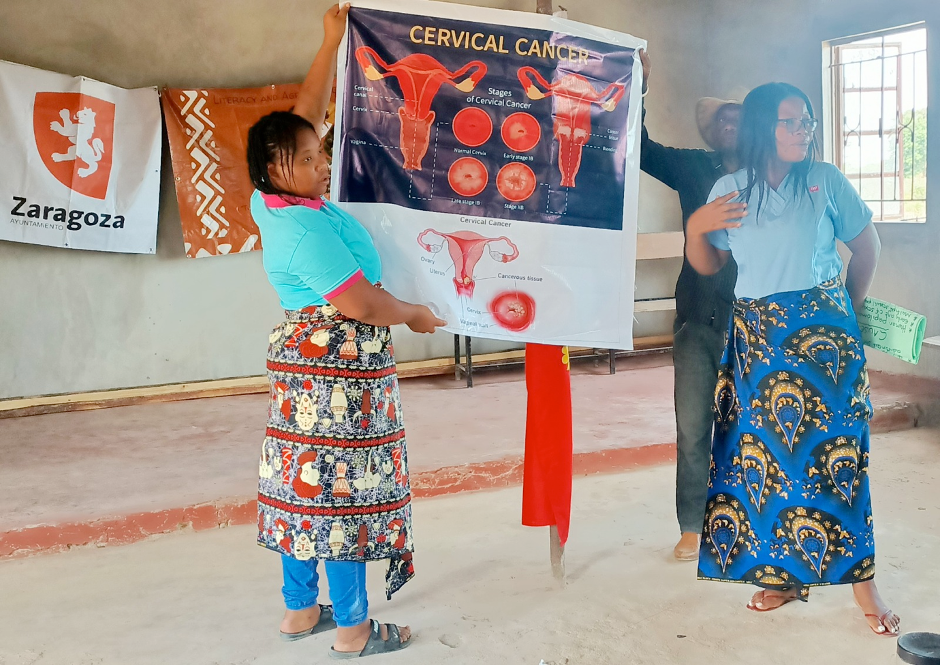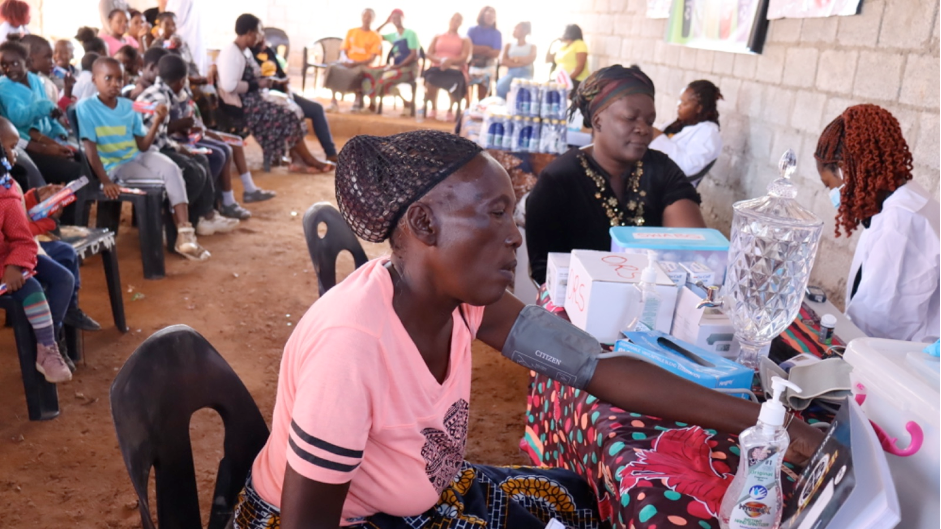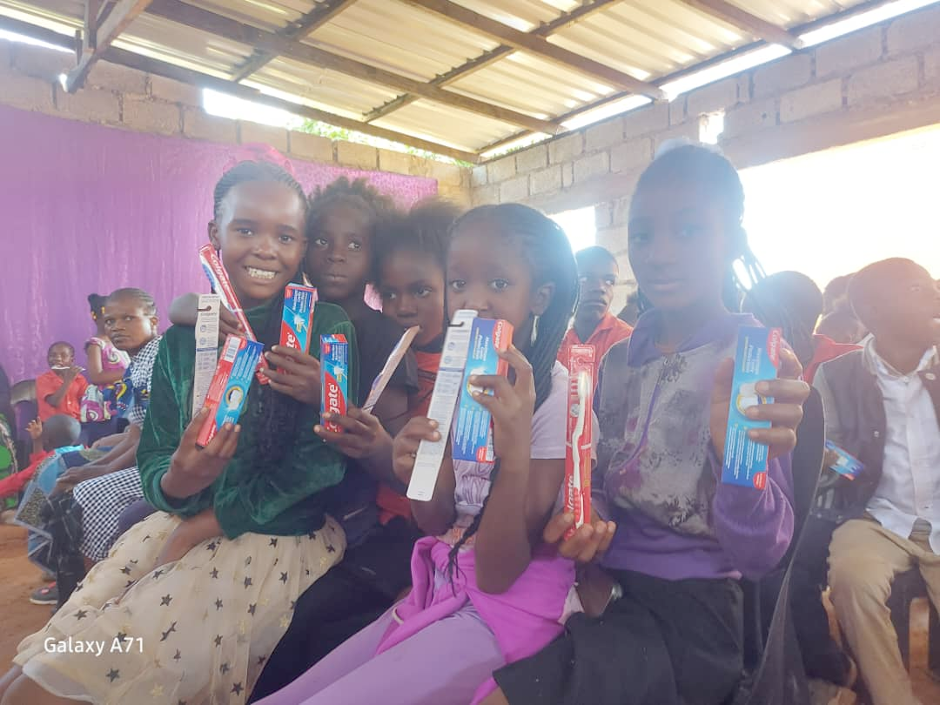
From Peoples Dispatch
The World Health Organization defines cholera as a “disease of inequality”. It thrives in conditions of poor hygiene and sanitation services, overcrowding, malnourishment, and weak public health services. A third of the Zambian population has access to basic sanitation services, while a quarter have access to basic hygiene services. With at least 60% of the Zambian population living in poverty in 2022 (up 5.6% since 2015), cholera is endemic, and from October 2023 to March this year, it killed over 700 people.
Cholera, more accurately, is therefore a disease of inequality.
Born from this deadly cholera crisis and its roots in social inequality, the Popular Health Mobile Clinic has assisted more than 3,000 patients since its inception in January this year. Working hand in hand with Brazil’s Landless Rural Workers Movement (MST) Samora Machel Brigade, the Socialist Party (SP) is getting much-needed healthcare services to communities failed by their government.

Building grassroots, versatile medical services
While still a relatively small project, the clinic is a versatile mobile health facility. Beginning in Lusaka Province, the clinic has traveled to Eastern Province and Central Province, three of Zambia’s ten provinces, primarily treating women, children and the elderly.
“We started in Lusaka by raising awareness and teaching people what cholera is and how to prevent getting cholera. Most of our people do not have access to safe drinking water. People are still drawing water next to the pit latrine,” explained SP Health Department nurse Ana Silva.
Part of SP’s broader health program, the clinic works on prevention through education and treatment of malaria, nutrition for children and the elderly, reproductive health for women, infectious diseases such as HIV, information on the symptoms and signs of cancers and more. “Education regarding healthcare is so important because it allows you to make informed decisions about your health. You can take measures that will prevent you from getting conditions such as cervical cancer or hypertension,” says Silva, who is a committed SP member and has worked with the clinic since its inception.
Silva explains that the clinic has plans to expand the team and train about 300 local health coordinators to spearhead programs in their localities. “Wherever we go we identify five local health coordinators to continue the work once we have left”.
“There is an obligation for us to play a politics that is not just ideological but is actively changing people’s lives. As socialists we have to respond very quickly,” says Dr Carlos Silva, SP General Secretary.
Healthcare for the most marginalized
In 2020, the incidence rate for cervical cancer in Zambia stood at 65.5 per 100,000 women – the third highest incidence globally – and a mortality rate of 43.4 per 100,000 women. “Many women have never been screened for cervical cancer for example. Some traditions, cultural norms and values put the cervix at risk of developing cervical cancer. Just checking and giving medication is not enough,” explained Silva. “Health education [therefore] is critical.”

Whilst treatments and preventative screenings are an important component of the clinic’s work, nutrition – which impacts the prevalence of the illnesses they treat – is a high priority for the clinic. “We are teaching mothers how they can provide nutritious food for their children such as the nutritional value of foods like groundnuts and toasted pumpkin seeds, how to cook porridge etc. We are conducting basic assessments where we offer a free service to weigh children and assess their growth,” says Silva.
With Zambia’s overall malnutrition rates remaining among the highest in the world, the clinic’s programming around nutrition, however, is not limited to the young. “The elderly built what Zambia is today, however as they no longer contribute to the economy and yield profit, they are treated as disposable, and are left wallowing in extreme poverty,” said Silva. “Most of the time we are focused on our young people when a lack of knowledge on something like nutrition is killing the elderly. Not knowing what to eat is causing hypertension, diabetes and much more.”

“In addition to this, we are encouraging peasant farmers to grow agro-ecological food, like producing organic fertilizer for example as there is a strong correlation between the food people eat and their health,” says Silva.
While the clinic trains people to gain greater awareness of healthcare and makes direct recommendations to the public health authorities (who bear the ultimate responsibility), it works to find immediate solutions to concrete problems. In the case of costly sanitary pads and the high rate of absenteeism from school of girl children during menstruation, the clinic is developing plans to, amongst discussions of basic hygiene, conduct lessons on how to make safe, reusable sanitary pads for women and girls.
“Normally health services are offered in a very narrow way,” explained Dr Silva. For the clinic, healthcare must be approached from multiple dimensions based on a real confrontation with the root cause: inequality. One pilot project that takes on this approach has been herbal soap production. The clinic has undertaken several trainings on producing herbal soaps with health benefits for the skin (using medicinal plants such as rosemary, tamarind and chamomile) and encouraged “backyard medicinal gardens”. Soap production is in turn a source of income.

Healthcare that learns from and serves the people
While running the SP clinic has many challenges, Silva remains optimistic. “The people are appreciating these healthcare services and how this project is bringing healthcare closer to their doorsteps. Our comrades from Brazil’s Landless Rural Workers Movement have inspired us through their popular health programs. We are learning a lot from the people of Zambia each day.”
“This project is also changing us,” Silva reflected. “As our members interact with the people, we get to understand the side effects of poor health. We also look at the socio-economic determinants. We are learning more from the masses. The emancipation of our people has to happen now, so we are creating these liberated territories where people can see a socialist seed being planted. This is what motivates us.”
As the South African communist revolutionary Chris Hani once said, “Socialism is not about big concepts and heavy theory. Socialism is about decent shelter for those who are homeless. It is about water for those who have no safe drinking water. It is about health care, it is about a life of dignity for the old. It is about overcoming the huge divide between urban and rural areas. It is about a decent education for all our people. Socialism is about rolling back the tyranny of the market. As long as the economy is dominated by an unelected, privileged few, the case for socialism will exist.”
